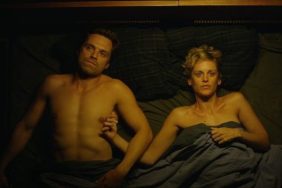As we take stock of the year that was, and either raise our fists in triumph or shake our heads in shame, it’s important to remember that all the good things that happened in 2016, and even all of the bad things, were simply isolated incidents. The majority of the stuff that happened this year was typical everyday junk that is destined to be forgotten by history and even by ourselves, as the days, weeks, months and years roll by.
That sounds a bit nihilistic and depressing, but as a critic it’s important to maintain a sense of perspective. A lot of what I do involves cataloguing works of art as they come out and once you’ve been doing that for a few years you start to realize that no matter how many great movies you try to highlight and how many truly bad movies you seriously criticize, the majority are just mediocre flicks that briefly entertain us and then vanish into the ether. According to Box Office Mojo, at the beginning of December, 671 feature films have already been released in theaters in 2016 alone. Let’s leave subjective notions like “good” and “bad” out of this. How many of those films do you honestly think people will still be talking about one year from now? What about ten years from now? What about fifty years?
And while it may turn out that some of the films we currently love will one day fade into obscurity (that’s how it usually works), and that some of the films we currently hate will seem less infuriating with age (that too), I think it’s safe to say that the following features are already pretty much gone from my memory. Unless someone desperately needs a retrospective of these actors’ or filmmakers’ careers, the odds that I’ll ever seriously discuss these films again are pretty limited. They were all made in good faith, I am certain, and everyone responsible for producing them probably had the best intentions. But they didn’t make an impact when they first came out and they aren’t terribly likely to become more significant as time goes on.
So say farewell to the most forgettable movies of 2016, folks. We hardly knew them, and it’s basically going to stay that way.
CELL

Saban Films
The promise of this Stephen King adaptation, based on a best-selling novel that equated cell phone usage with the zombie apocalypse, was enough to get many horror hounds salivating for years. And so we waited for Cell, a scary movie starring John Cusack and Samuel L. Jackson, and we waited, and we waited, and we ended up waiting several years for the completed film to finally get its distribution sorted out. Then Cell just got unceremoniously dumped into an already bloated summer season, with a very limited theatrical release and a VOD premiere that lacked any fanfare.
And even though it’s now finally available, Cell is likely to stay buried. It’s a boring trek across a wasteland America, like The Walking Dead without any highlights or interpersonal drama. The commentary about our troubling relationship with technology doesn’t even work because the film is hopelessly out of date. The film is set in an unconvincing world where everybody talks on their cell phones and nobody ever texts. It’s a featureless feature film, and one that we’re all probably better off forgetting.
CROUCHING TIGER, HIDDEN DRAGON: SWORD OF DESTINY

Netflix / The Weinstein Company
Michelle Yeoh returned for this follow-up to the Oscar-winning wuxia classic Crouching Tiger, Hidden Dragon but the other major players changed around her, and the result was a film that had some fun action but an unwieldy storyline and no class to speak of. It’s the overly complicated tale of a pair of teen martial artists who fight over a magical sword, and the older masters who rekindle their love as they fight alongside them. I literally forgot about that second part until I rewrote this paragraph. That’s how dull half of this movie was.
Originally intended for a theatrical release, Crouching Tiger, Hidden Dragon: Sword of Destiny wound up going straight to Netflix, a distributor that has been striving – with some success – to release quality motion pictures in the streaming environment. But this film is no Beasts of No Nation. Heck, it isn’t even Pee-wee’s Big Holiday. It’s the sort of mediocre straight-to-video stock sequel that audiences have been forced to slog through for decades, but now it’s trussed up as if going “straight-to-video” somehow makes it special.
THE FINEST HOURS

Walt Disney Studios
Real-life drama doesn’t always make for dramatic motion pictures. Sometimes you get sappy, overcooked flicks like The Finest Hours, a film that stars Chris Pine as a timid Coast Guard crewman who rescues the crew of an oil tanker that cracked in half in the middle of a storm, using only one tiny boat, a whole lot of moxie, and luck. Meanwhile, the ship’s engineer – played by Casey Affleck – struggles to keep the ship intact long enough for the rescue to arrive, utilizing makeshift tools held together by a crew that’s losing their minds with fear.
That’s one hell of an interesting incident, so it’s a pity that the movie seems focused elsewhere. When Casey Affleck is on camera The Finest Hours is engaging and diverting, but Chris Pine is the lead here and the majority of his story is centered around a milquetoast love affair with a perfect woman who saves the day by turning her car lights on and giving speeches about togetherness. It’s sweet but it’s a distraction from the whole reason this movie was made. The movie loses focus until it nearly goes blind, making it much too hard to see why we should care.
THE FOREST

Gramercy
The first movie of the year is rarely the best, but usually it sucks a lot more than The Forest, a middle of the road supernatural thriller about an American woman in a haunted Japanese forest, trying to rescue her identical twin sister from a suicide attempt. Game of Thrones star Natalie Dormer takes the lead here, and she acquits herself admirably in a film that otherwise seems eager to merely be vaguely spooky until it comes to an end.
You see, The Forest is the sort of psychological horror movie that doesn’t understand psychology, gradually pulling the hero into despair without inviting audiences to join her. It’s reasonably well filmed but in the service of very little, with twists that are obvious a mile out and an ending the fails to have any serious dramatic impact. It’s an adequate time waster, sure, but wasting your time isn’t a particularly memorable activity, is it?
THE HUNTSMAN: WINTER’S WAR

Universal Pictures
If anyone actually WANTED a sequel to Snow White and the Huntsman, I’m pretty sure they didn’t want a film that focused entirely on the Huntsman and his badass ex-girlfriend, while Snow White is relegated only to a single shot, having gone completely insane between movies. But that’s what happened anyway, and it’s not quite as bad as you think. It’s like Willow Jr. or Baby’s First Krull, an occasionally amusing fantasy pulp adventure that vanishes out of your head a week later, unless you’re a professional film critic and you just know in your heart of hearts that you’ll have to say something about it one more time, at the end of the year.
But I am eagerly looking forward to finally letting the last vestiges of this limp fantasy flick seep out of my ears once and for all. There was something about bleeding gold? And kids who aren’t allowed to love? I think maybe Emily Blunt turned into an owl? Aaaaaand… it’s gone, gone forever now. Good. Let’s move on.
THE LEGEND OF TARZAN

Warner Bros.
David Yates may be the least interesting director of blockbuster entertainments on the planet. He’s directed five Harry Potter movies and each one coasted on our pre-existing interest in the world and its characters, merely presenting the events that occur instead of telling the stories with any empathy or, god forbid, a hint of flare. He gets away with those, for better or worse, but it’s an approach that doesn’t work with Tarzan because, unlike Harry Potter, most contemporary audiences don’t have a profound connection to the character and they actually needed to be convinced that he’s still interesting and relevant.
And so we get the noble failure The Legend of Tarzan, which squanders a dynamite cast by telling a story that skims over all the good bits – the romance between Tarzan and Jane, the conflict between Tarzan’s jungle life and the promise of human connection, i.e. the reasons we’re actually filming this movie in the first place – in favor of skipping to the Crocodile Dundee II sequel where Tarzan returns home for a pat retread of his origin adventure… which, again, we even didn’t fully see in the first place, and which currently has no meaning to us.
To the film’s credit, the cast is great and the final, stampede action sequence is pretty thrilling, but everything else is in this movie assumes we’re already invested even though there’s absolutely no reason we should be. Tarzan isn’t terrible but it’s still a swing and a miss.
MECHANIC: RESURRECTION

Summit Entertainment
A forgettable sequel to a forgettable remake of a pretty good action movie that most audiences forgot about anyway. Mechanic: Resurrection marks the return of Jason Statham as a character who faked his own death, and who now must come out of hiding to kill a bunch of people we don’t care about for a guy with a “mysterious agenda,” one that the hero literally guesses off the top of his head in the very first act. Meanwhile, Jessica Alba plays a soldier who can’t fight and Tommy Lee Jones appears to be playing an older, still-alive version of his battleship hijacking villain from Under Siege (although he is still, easily, the best part of the movie).
Mechanic: Resurrection is the sort of uncomplicated, inexpensive action sequel you’d normally expect to find on the straight-to-video marketplace, with Statham replaced by a less popular actor like Steve Austin or Johnathan Schaech. It would have been relatively impressive by those standards, and it’s not the worst theatrical matinee you’ve ever seen either, but it’s so limited in its creative scope that its memory evaporates as soon as the credits roll.
MONEY MONSTER

TriStar Pictures
Jodie Foster returned to the director’s chair with an impressive cast (George Clooney, Julia Roberts, Jack O’Connell) and a noble idea, to use the old school hostage thriller as a delivery system for social commentary, and to force audiences to confront the sociopathic nature of multibillion dollar corporations, along with the enabling apathy of the 24-hour news media. Sure enough, Money Monster is a suspenseful little movie. If it had any teeth whatsoever, it might have even left a mark.
Money Monster comes to a series of extremely rote conclusions about the media, and the way we can finally overcome the economic disparity in this country. Even before the rise of Donald Trump, the assertion that merely exposing hypocrisy would be enough set the hypocrites on the road to ruin was a pretty naive sentiment. Money Monster is certainly slick and it features a smart undercurrent about the significance of female directors, with Julia Roberts’ character as a noteworthy stand-in for Foster, but it had point to make and it didn’t make it convincingly. I was engaged at the time but Money Monster failed to make a lasting impact. There’s no reason to hang on to a message if the filmmakers don’t give you a reason to believe in it.
SNOWDEN

Open Road Films
Perpetual anger machine Oliver Stone seemed like the perfect choice to direct Snowden, a biopic about infamous whistleblower Edward Snowden, one that seeks to expose the extent of the American government’s invasion into your personal privacy. It’s just the sort of hot button political issue that made his previous classics, like JFK and Born on the Fourth of July, such unforgettable exercises in political rabble-rousing.
And yet Snowden falls completely flat. It’s a competent but unremarkable drama with thin characters and an overabundance of didactic speechifying, a film that takes the perspective of another Oscar-winning filmmaker – documentarian Laura Poitras, who herself is a character in Stone’s film – instead of offering a fresh perspective. Snowden plays like a foregone conclusion, so much so that getting to the actual incident that defined Edward Snowden’s life is a boring chore, and by that point the film is mostly over. It’s one of the biggest missed opportunities of 2016, an unnecessary illustration of what we already knew instead of an interesting illumination of the people and incidents involved.
13 HOURS: THE SECRET SOLDIERS OF BENGHAZI

Paramount Pictures
Michael Bay’s best movie – although not, obviously, his most flamboyant – is a slick propaganda piece about the heroic soldiers involved in the 2012 terrorist attacks in Libya, and the sniveling, ineffectual bureaucrats who tried to stand in their way. Let’s leave politics out of this for a moment, because regardless of your interpretation of these events, 13 Hours is a competent drama, clearly defined and generally rousing. It’s Bay’s most focused feature film and it’s actually surprising that in the era of American Sniper and Lone Survivor, nobody seemed to give a damn.
13 Hours: The Secret Soldiers of Benghazi barely broke even at the American box office, and it made less than $20 million internationally, failing to connect with what seemed be a very large target demographic. Perhaps it’s because, like Snowden, anyone with any interest in seeing this movie already had a rigid idea in their head of what really happened and how they felt about it. So 13 Hours is a blip on the pop culture radar, one that seems destined to continue to fade. The quality of the production may be impressive by Michael Bay’s standards, but it’s not so incredible that the folks who actually have seen 13 Hours are likely to retain it in their memory banks.
TRIPLE 9

Open Road Films
Triple 9 has one of the most impressive casts of the whole year, but what was it that united Chiwetel Ejiofor, Kate Winslet, Casey Affleck, Anthony Mackie, Aaron Paul, Clifton Collins Jr., Norman Reedus, Michael K. Williams, Teresa Palmer, Gal Gadot and Woody Harrelson? It was a humdrum heist thriller, about a group of corrupt cops robbing banks for the Russian mob. One of the robbers has a daughter he’d very much like to see again. One of the others might have to kill his new partner to get the latest job done. At one point a dye-pack explodes and they get themselves in a shootout while they’re covered in red paint, and that’s the only image that stands out, isn’t it?
Perhaps the thing that sabotages Triple 9 the most is its own self-seriousness. It’s a heist thriller, but director John Hillcoat plays it like a great American tragedy. The great cast mopes about instead of interacting in ways that justify hiring such a great cast in the first place. It’s like they’re TRYING to bore us.
Well… mission accomplished, I guess.
Top Photo: Summit Entertainment
William Bibbiani (everyone calls him ‘Bibbs’) is Crave’s film content editor and critic. You can hear him every week on The B-Movies Podcast and Canceled Too Soon, and watch him on the weekly YouTube series Most Craved, Rapid Reviews and What the Flick. Follow his rantings on Twitter at @WilliamBibbiani.








